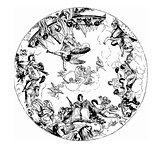
How the Incarnation Transformed History
THE FOUNDATION OF HUMAN RIGHTS & HUMAN DIGNITY
It is no surprise that modern man measures human worth based on productivity, utility, or surface appearance. In the face of this, the Incarnation of Jesus Christ, the Son of God made fully man, declares something audacious, beautiful, and startling: We men have inherent dignity not because of what we do but because of who we are and, even more stunningly, because of who God became. Our dignity is not due just to our being bearers of the divine image but to the divine Person’s having assumed our lowly, created human nature. God’s eternal Word was “made flesh” (Jn. 1:14), and in that singular historical event, the trajectory of human civilization was forever changed. This is not simply a religious claim; it is an historical fact, and because of that it is a civilizational and epistemological earthquake, reverberating throughout history, law, science, art, medicine, psychology, and our understanding of personhood itself.
The Logos Enters History
The Incarnation is a central mystery of Christianity: The Second Person of the Trinity, God the Son, assumed a fully human nature in the womb of the Blessed Virgin Mary. “Remaining what He was, He became what He was not,” declared Pope St. Leo the Great, “uniting humanity to His divinity” (Sermon 21 on the Nativity). This was not mere appearance or a symbolic gesture; it was a divine condescension, a real union of the Creator with the creature.
C.S. Lewis calls the Incarnation “the humiliation of God.” He writes in his book Miracles (1947), “In the Christian story God descends to reascend. He comes down; down from the heights of absolute being into time and space, down into humanity…. But He goes down to come up again and bring the whole ruined world up with Him.” This language of a divine condescension evinces a powerful reality: Our salvation is abjectly unearned, as it is entirely a gift of divine benevolence.
The Incarnation did more than save souls; it sanctified all matter, all history, and human nature itself. In Christ all mankind is elevated in dignity because we are now allowed to participate in the divine nature. As the Catechism of the Catholic Church teaches, “The Word became flesh to make us ‘partakers of the divine nature’” (no. 460; cf. 2 Pet. 1:4). It is this truth that virtually shattered the Greco-Roman and global pagan worldviews. It transformed concepts of systematic natural law jurisprudence and laid the foundation for human rights as we know them.
You May Also Enjoy
The Liturgy of the Word, which is a part of every Mass, would be one logical place for Catholics to look for divine guidance.
Scores of extra-canonical Jewish and Jewish-Christian writings were composed during the period between 300 B.C. and A.D. 200.
Where eternal rewards and punishments are concerned, are we more tenderhearted and clear-eyed than our forebears in faith -- than God Himself?

